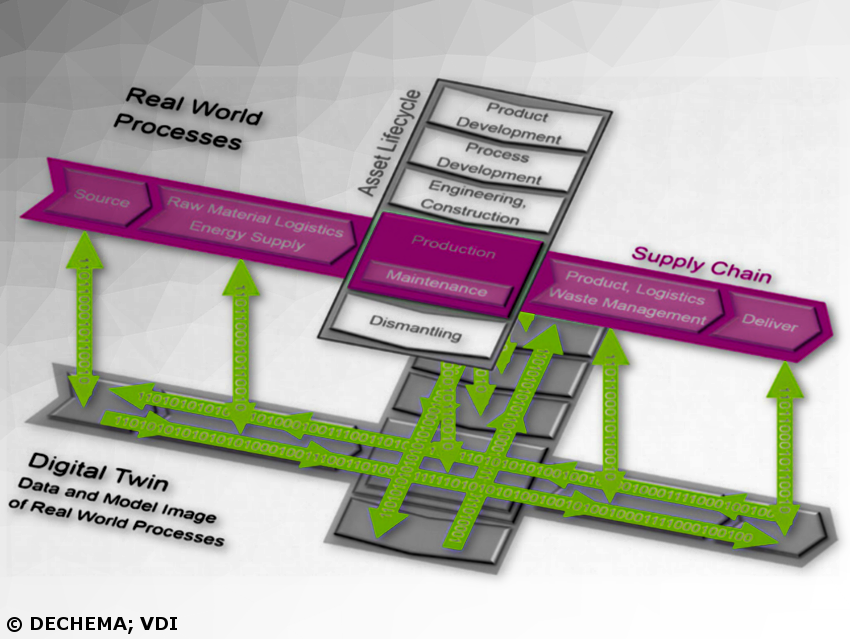Process simulation is already one of the most important tools in process development, operation, and optimization of processes in the chemical, biotechnological, and pharmaceutical industries. But are the existing tools sufficient to meet the requirements of the digitalized industry? This question is addressed by Sönke Bröcker, Regina Benfer, Michael Bortz, Sebastian Engell, Carsten Knösche, and Andreas Kröner, members of the ProcessNet working committee Process Simulation, Process Synthesis and Knowledge Processing.
In a position paper, they describe the current situation, point out future challenges, present possible solutions for a future simulation landscape as part of an interconnected environment, and address elementary issues of data security and robustness.
Comprehensive program systems have been developed by a few manufacturers to support the chemical industry with process simulations. These systems are very diverse. Nevertheless, there is still no simulation environment that can represent all aspects of a process life cycle sufficiently well. Therefore, the process industry is additionally interested in open, modular solutions for individual aspects.
According to the experts, the concept of self-sufficient, closed process simulations will increasingly change into an open system of flexible components that are integrated into a digital infrastructure. This requires transparent and widely accepted interfaces, the integration of further data, and central management of consistent substance data as well as open architectures.
The requirements of dynamic process models, which are often necessary today, are not yet met by current systems, and the permeability across different levels from the equipment model to the entire process and across the different stages of the process life cycle is also very limited.
Experts assume that it will be impossible to achieve the necessary consistency in a single simulation tool. The development of intelligent software architectures should, therefore, focus on interfaces and central model management systems. Data-driven models will complement or replace today’s approaches in the future.
- Sönke Bröcker, Regina Benfer, Michael Bortz, Sebastian Engell, Carsten Knösche, Andreas Kröner, Process Simulation – Fit for the future? Position paper of the ProcessNet working Committee Process Simulation, Process Synthesis and Knowledge Processing, ProcessNet 2021.




